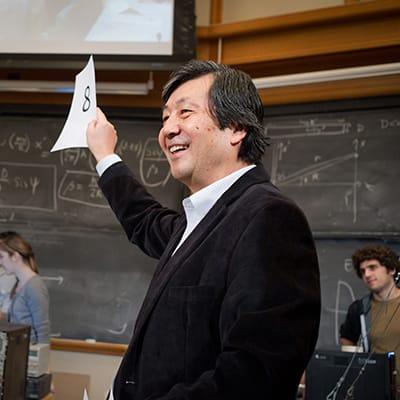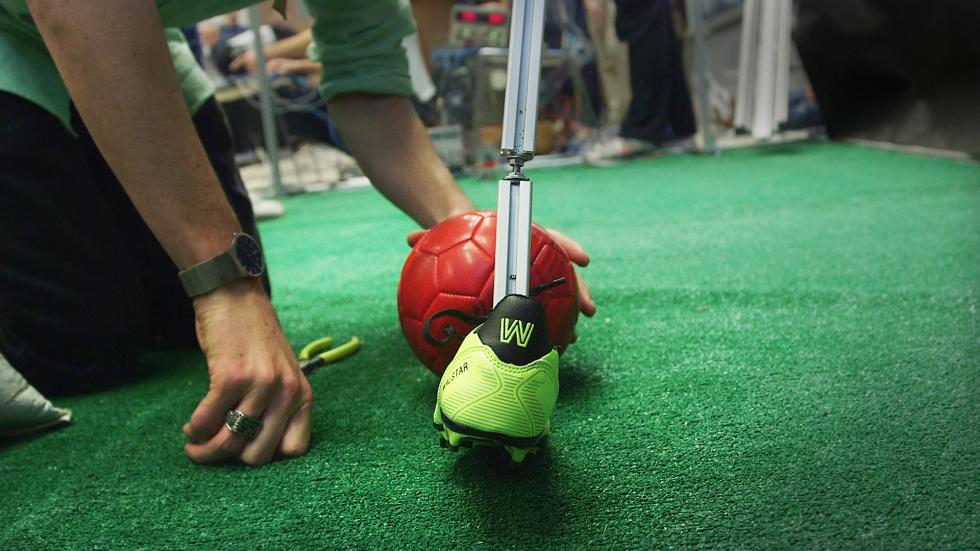
2.12/2.120: Introduction to Robotics
Class Information
Fall/Spring | Undergraduate | 12 Units | Prereq: 2.004
Cross-disciplinary studies in robot mechanics and intelligence. Emphasizes physical understanding of robot kinematics and dynamics, differential motion and energy method, design and control of robotic arms and mobile robots, and actuators, drives, and transmission. Second half of course focuses on algorithmic thinking and computation, computer vision and perception, planning and control for manipulation, localization and navigation, machine learning for robotics, and human-robot systems. Weekly laboratories include brushless DC motor control, design and fabrication of robotic arms and vehicles, robot vision and navigation, and programming and system integration using Robot Operating System (ROS). Group term project builds intelligent robots for specific applications of interest. Students taking graduate version complete additional assignments. Enrollment may be limited due to laboratory capacity; preference to Course 2 majors and minors.
Instructor Information

Harry Asada (Spring)
Ford Professor of Engineering; Professor of Mechanical Engineering
Interest Areas
- Augmenting human capabilities with wearable robots.
- Modeling and understanding cell interactions through numerical simulations.
- Building and controlling a harmonic actuator based on piezo-electric units.

